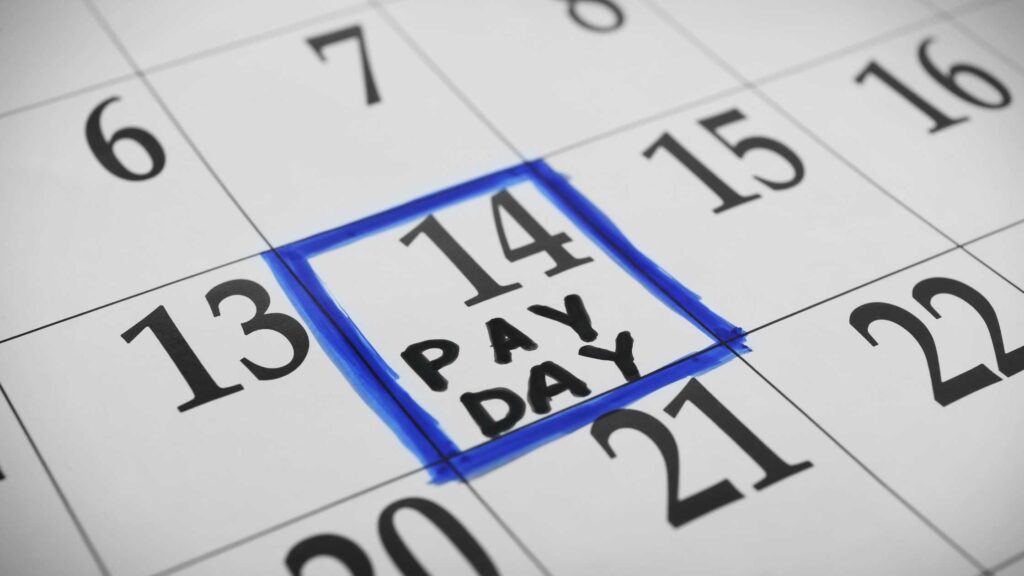Personal finance rules aren't meant to feel like strict orders from some outdated money manual. They’re here to make your life easier, wealthier, and less stressful. And in 2025, we’re done with recycled advice that doesn’t hold up anymore.
I will dive into the top 10 personal finance rules that not only work today, but also help you build real freedom and momentum in your financial life.
Whether you're chasing financial independence, growing your first $100K, or just tired of feeling stuck, these rules are your new money playbook. Let’s upgrade your financial mind set and manage your finances strategically.
Rule #1: Pay Yourself First—Before the Bills, Before the Fun
This might sound old-school, but paying yourself first is still one of the most powerful personal finance rules out there. The twist? Automate it.
In 2025, there’s no excuse not to route a fixed percentage of your income, let's say, 20%, directly into your savings or investments before it ever touches your checking account. Why? Because if you wait until “later” to save, life will eat it up.
Rent. Streaming subscriptions. Random Amazon buys. But when you reverse the order and save first, your lifestyle adapts to what’s left. That’s how wealth is built consistently, not occasionally.
Think of it like this: you're the CEO of You, Inc., and the first person you need to pay is yourself.
Rule #2: Spend Less Than You Earn (But Know What That Really Means)
We’ve all heard of the rule “spending less than you earn”. It’s a classic personal finance rule for a reason, but let’s dig deeper. In today’s world, with endless buy-now-pay-later options and lifestyle inflation at every turn, simply “spending less” isn’t enough.
You need to master the gap—the space between what you earn and what you keep. And the goal? Widen that gap over time. That means increasing your income while staying intentional with your expenses.
You don’t have to be frugal to win, you just need clarity. Know your fixed expenses. Know your variable ones. Cut what doesn’t spark joy or results. And for the love of your future self, track your spending. What gets measured gets managed.
Rule #3: Never Rely on a Single Source of Income—Build Streams, Not Pipes
If 2020 taught us anything, it's that a single paycheck is fragile. One job loss, one economic shift, and instability if right there knocking at the door. One of the most underrated personal finance rules in 2025 is to diversify your income streams.
You don’t need seven streams tomorrow, but you do need to think like a builder, not just an employee. Start small. Freelance, rent out a space, sell a digital product, build dividend income, launch a side hustle you enjoy.
The more your money flows in from different directions, the less financial stress you’ll carry. It’s about resilience, not hustle culture. Wealth loves streams, it rarely comes through a single pipe. This is the way you can become rich in today's world.
My current favorite ways to diversify income today:
- Coinbase – Get up to $200 when you sign up here.
- RVezy – Rent out an RV and make up to 4k or more a month
- Teachable – Create an online course to sell
- Fiverr – Earn income from Freelance opprotunities
Rule #4: Keep 3–6 Months of Expenses in Cash (Even if It Feels Boring)
In the age of high-yield savings accounts and FinTech apps, emergency funds have become sexy again—and thank goodness. Because when life hits you with a curveball (and it will), nothing provides peace like a well-stocked cash cushion.
Keeping 3 to 6 months of expenses liquid might feel like “money sitting idle,” but don’t confuse boring with weak. Cash is oxygen. It lets you make decisions from a place of power instead of panic.
Lost a job? No problem. Medical surprise? Handled. Unexpected move? You’re covered. An emergency fund isn’t just a financial rule—it’s a mental health tool disguised as dollars.
Rule #5: Invest Early and Often
If there’s one personal finance rule that separates the wealthy from the worried, it’s this: start investing yesterday. No, you don’t need to master the stock market or chase meme coins.
You just need consistency. Compound growth isn’t sexy at first, it’s slow and invisible, but give it time, and it becomes unstoppable. The magic lies in starting early. The longer your money is invested, the more time it has to snowball.
Even small amounts make a massive difference if you’re consistent. Use index funds. Max your Roth IRA if eligible. Join your 401(k) plan. Automate everything. And ignore the noise—market dips aren’t crashes; they’re sales.
Rules 6–10 will take you even deeper into wealth-building territory, including how to avoid lifestyle traps, use debt wisely, and make financial decisions like a millionaire.
Rule #6: Use Credit as a Tool—Not a Crutch or a Trap
Let’s face it, credit cards and financing are everywhere. And used wisely, credit can be a strategic part of your money game. But ignore this rule, and you’re building a house on sand.
One of the most effective personal finance rules in today’s debt-driven culture is to use credit only as a tool, not as a substitute for real money. That means paying off your balance in full every month.
It means never financing stuff that doesn’t appreciate or generate income. And it absolutely means knowing your interest rates. Good credit opens doors—mortgages, business funding, lower insurance premiums—but bad credit? It locks them shut.
I like to use Monarch Money to manage my finances and track credit. They have also helped me find better refinancing options. I highly suggest considering using their platform to track and manage your finances all in one place.
Rule #7: Avoid Lifestyle Creep Like Your Future Depends on It (Because It Does)
You got a raise, congrats! But here’s the trap: instead of saving or investing more, you upgrade your life. You move to a nicer apartment, lease a flashier car, or start dining out five nights a week.
Welcome to lifestyle creep, the sneakiest saboteur of long-term wealth. One of the most timeless personal finance rules is to avoid letting your expenses rise at the same pace as your income. You can treat yourself, sure.
But don’t let temporary lifestyle perks eat up permanent progress. If you make more money, keep living below your means and send the difference into investments or debt payoff.
That’s how wealth snowballs, not from more spending, but from smarter decisions. Make the best frugal living decisions now so you can get ahead earlier in life.
Rule #8: Know Your “Enough Number” and Build Toward It
Here’s a truth bomb most people miss. You don’t have to chase infinite money to win at life. Instead, define what enough looks like for you. What does your ideal lifestyle cost?
How much freedom do you want? What would it take to work because you want to, not because you have to? This is where one of the most liberating personal finance rules kicks in, which is to know your “enough number.”
It’s the amount of money, investments, and cash flow that gives you true autonomy. When you know that number, your financial journey becomes laser-focused.
You're no longer chasing vague goals, you’re building toward clarity and confidence. That’s real financial independence.
Rule #9: Track Your Net Worth Like an Entrepreneur
If you don’t know where you stand financially, it’s hard to move forward. Your net worth is the scoreboard that tells you how your money habits are actually working. Assets minus liabilities. That’s it.
And once you start tracking it monthly, you’ll never look at your finances the same way again. Out of all the personal finance rules, this one creates the most momentum. Because as your net worth grows, so does your motivation.
It’s more exciting than a budget, more honest than your income, and more empowering than any single financial app. You’ll start making sharper moves—paying off debt faster, investing more intentionally, and avoiding fluff.
Rule #10: Make Every Dollar a Decision, Not a Default
Most people let their money tell them where it’s going. But one of the most transformational personal finance rules is flipping that mindset, you tell your money where to go. That means every dollar has a purpose. It’s not about deprivation. It’s about direction.
You’re no longer on autopilot. That $500 impulse purchase? You’ll pause to ask: “Is this aligned with my goals?” That random subscription? You’ll cancel it if it doesn’t serve you.
You become the CFO of your life. And just like great businesses grow through intentional spending, so will your wealth. Money isn’t just about math. When your money flows where your values live, you stop feeling guilty and start feeling secure.
3 FAQs About Personal Finance Rules
What are the golden rules of personal finance?
The golden rules of personal finance include paying yourself first, spending less than you earn, investing early, and avoiding lifestyle inflation. These principles create the foundation for building long-term wealth and achieving financial freedom.
How many personal finance rules should I follow?
Ideally, all ten of the personal finance rules mentioned in this post work together to give you full-spectrum control. But if you're just starting, pick three that resonate most and build momentum from there.
Are personal finance rules different in 2025?
Absolutely. While the core values stay the same, modern personal finance rules emphasize automation, diversification of income, digital investing tools, and avoiding the cultural pressure of overspending in a hyper-connected world.







